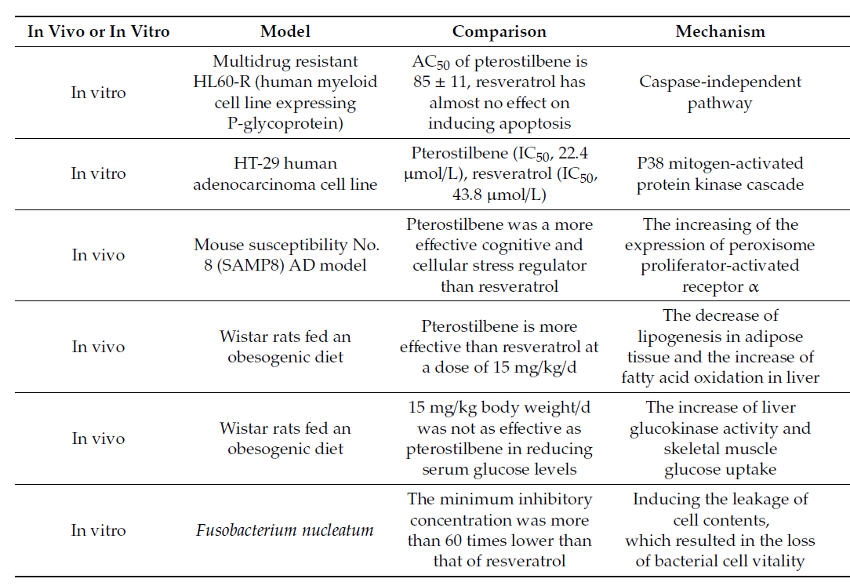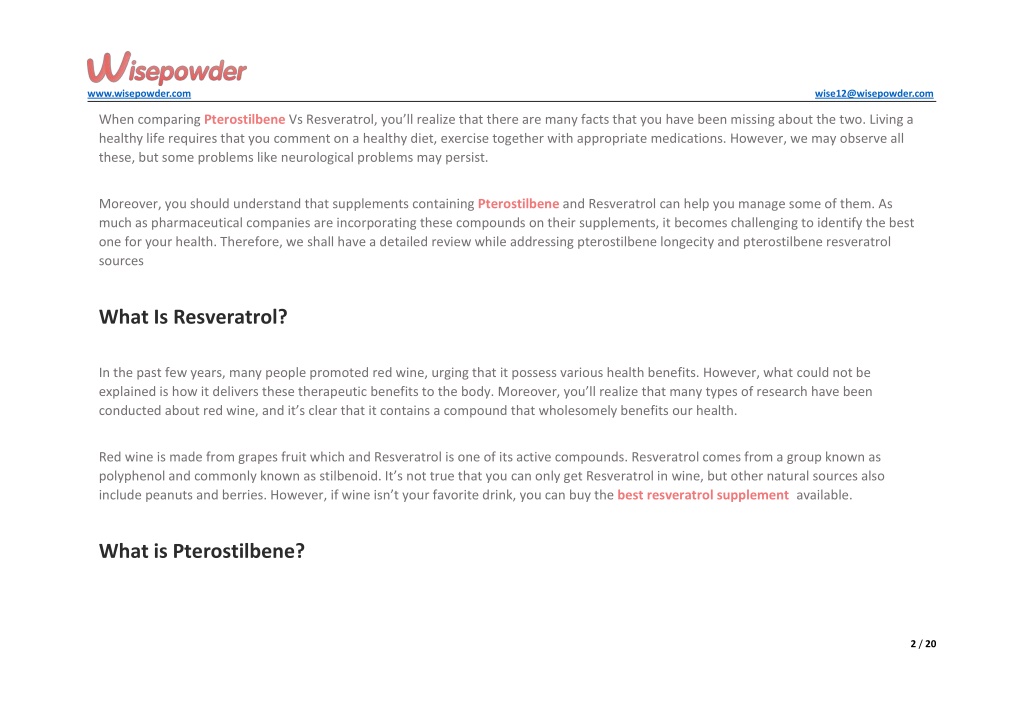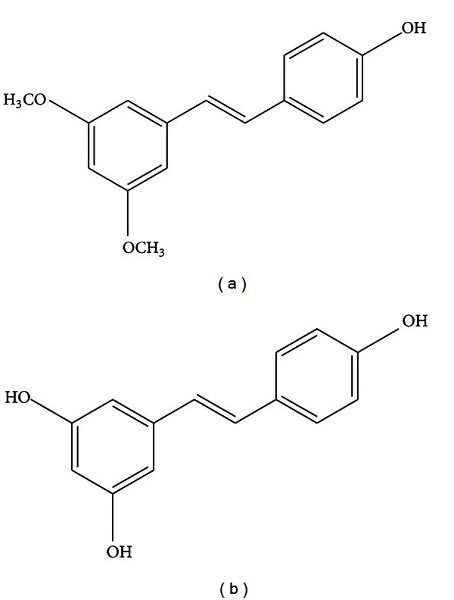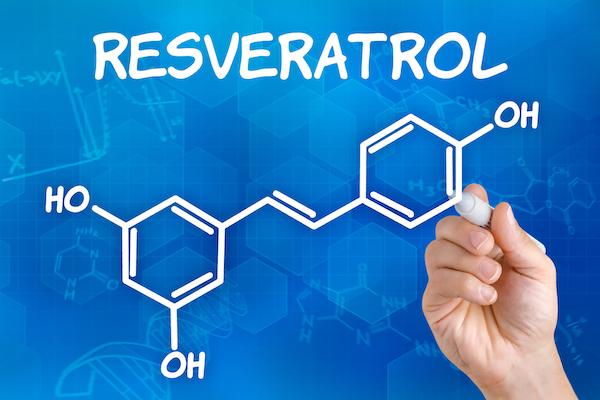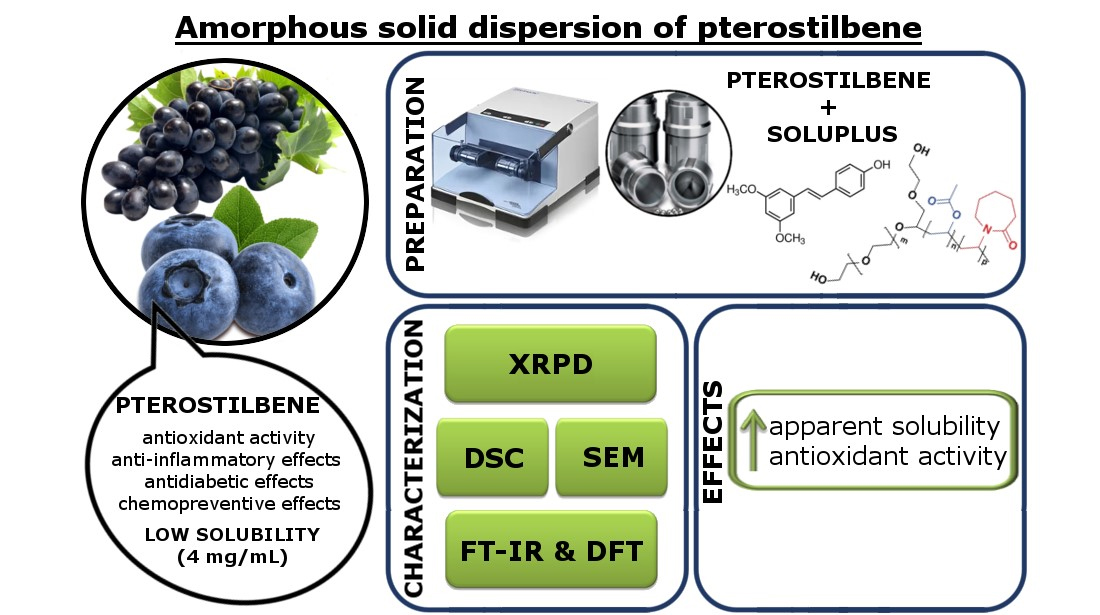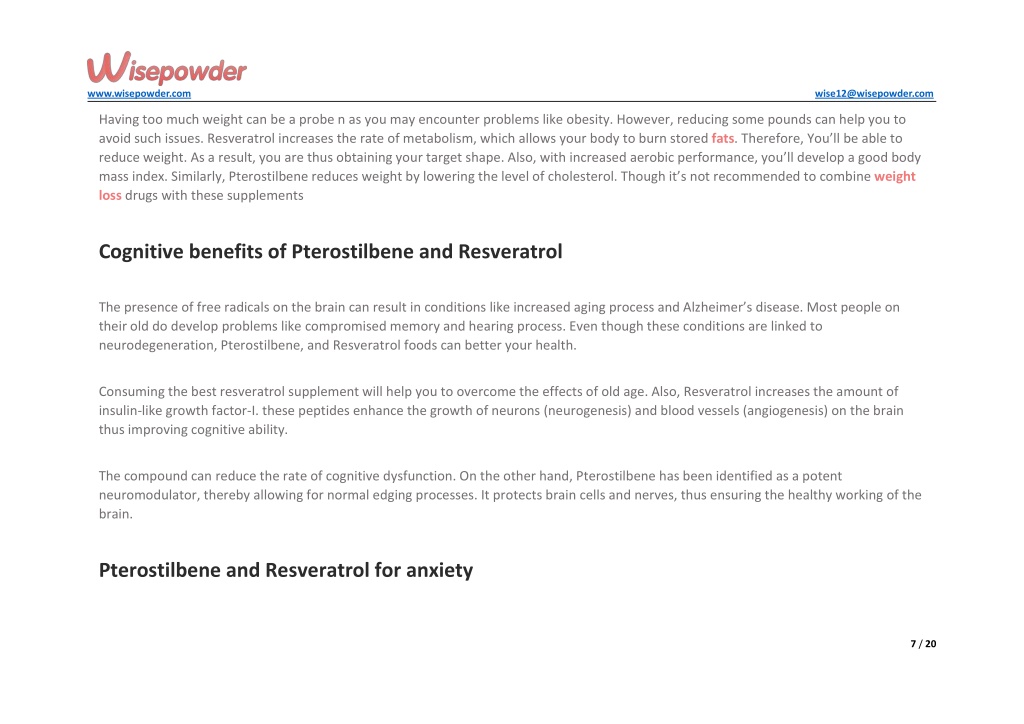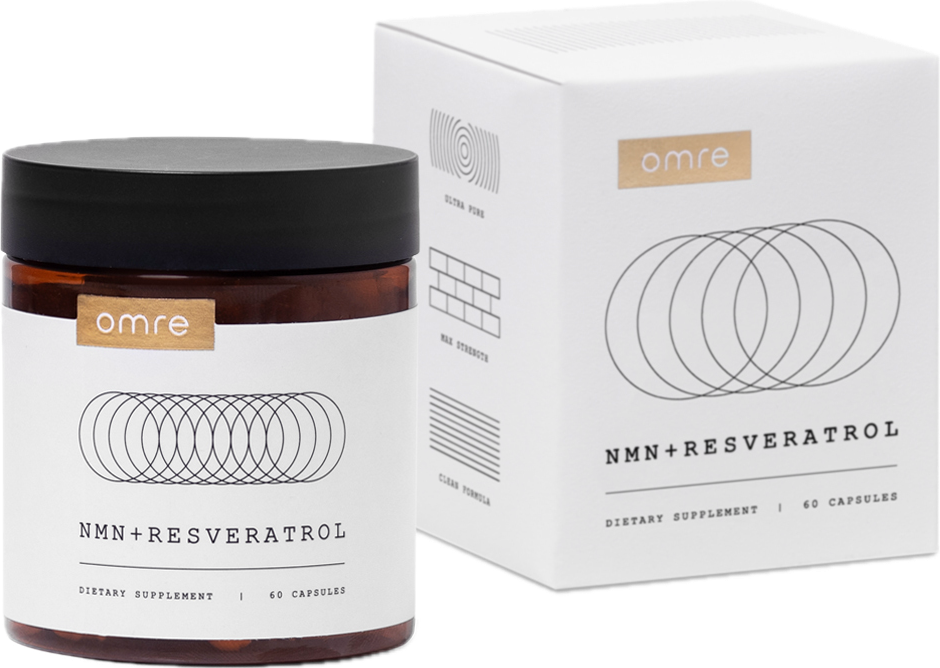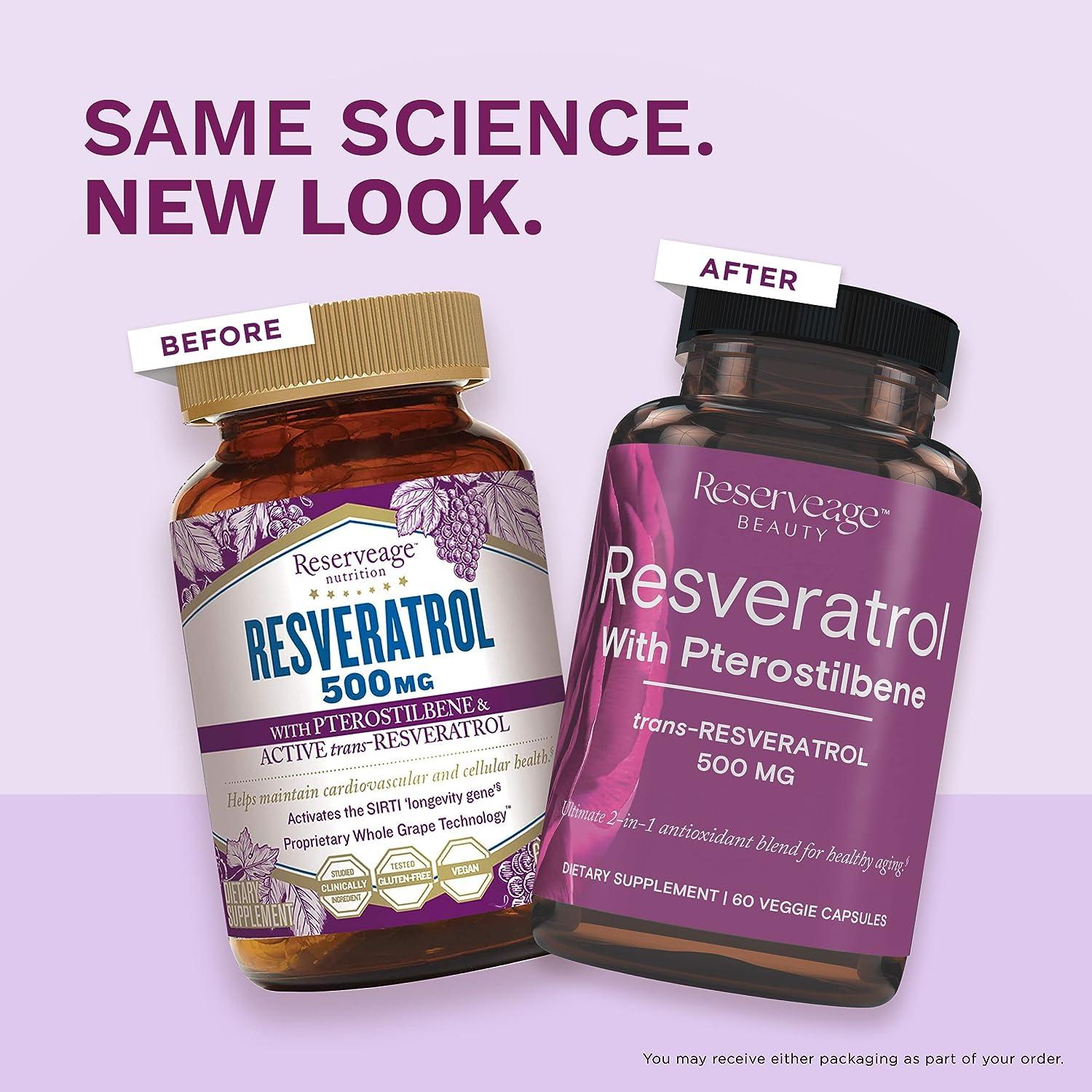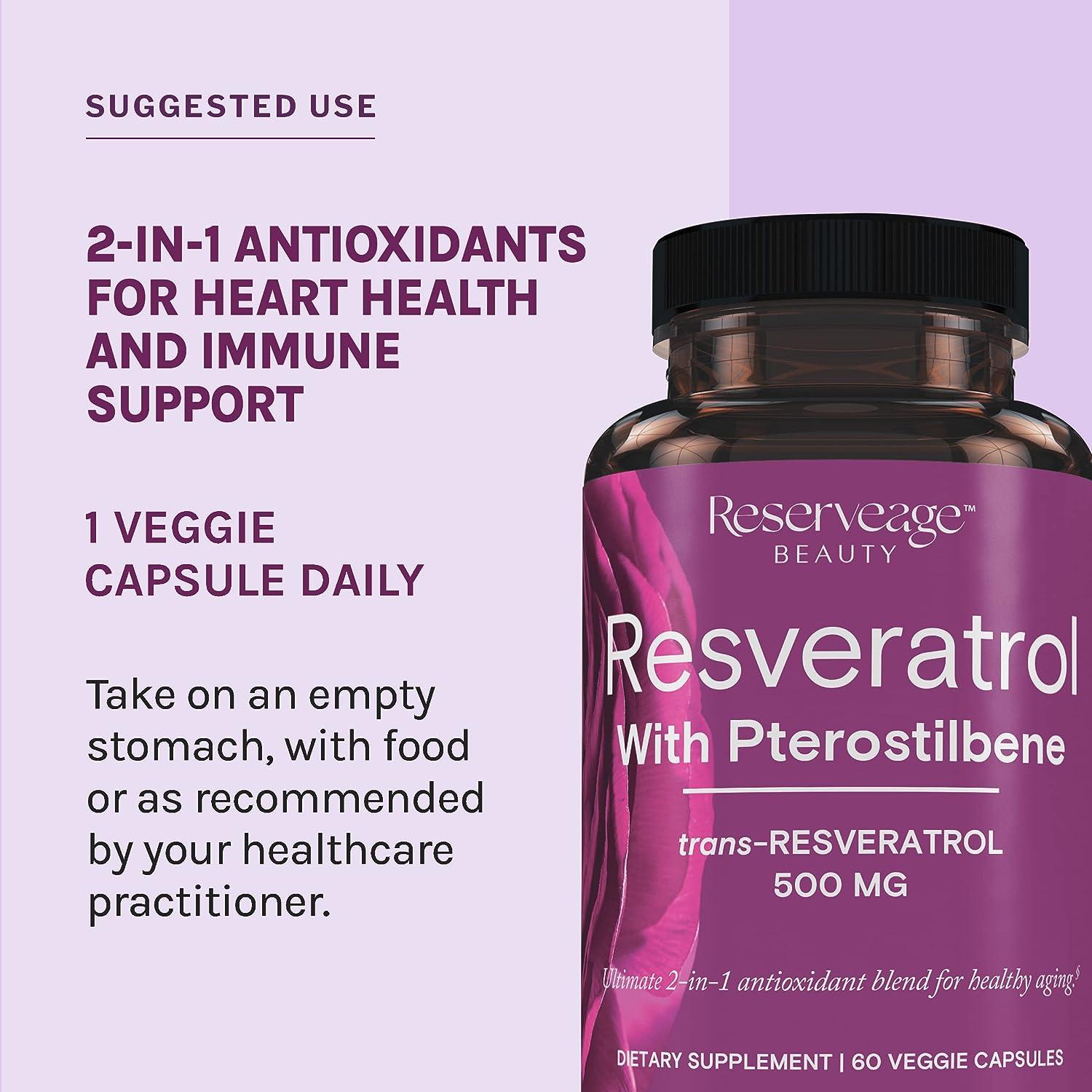Which Is Better Resveratrol Or Pterostilbene

The quest for longevity and improved health spans centuries, driving researchers to explore natural compounds with potential benefits. Among the numerous contenders, resveratrol and pterostilbene, both naturally occurring stilbenoids, have garnered significant attention. But which one offers superior health advantages?
This article delves into the science behind these two compounds, comparing their properties, potential benefits, and limitations to provide a balanced perspective for informed decision-making. Understanding the nuances of each substance is crucial before incorporating them into any health regimen. It's important to note that this is not medical advice, and consulting with a healthcare professional is always recommended.
What are Resveratrol and Pterostilbene?
Resveratrol is a polyphenol found in grapes, red wine, berries, and peanuts. It gained prominence for its potential cardioprotective effects, famously linked to the "French Paradox," the observation that French people exhibit relatively low rates of heart disease despite a diet rich in saturated fats.
Pterostilbene, on the other hand, is a methylated derivative of resveratrol, primarily found in blueberries and almonds. The methylation process alters the molecule's structure, potentially influencing its bioavailability and biological activity.
Key Differences and Similarities
Both resveratrol and pterostilbene share similar antioxidant and anti-inflammatory properties. They are both stilbenes and act similarly in certain biological pathways.
The key difference lies in their molecular structure and, consequently, their bioavailability. Pterostilbene has better bioavailability due to its two methoxy groups, which enhance its ability to cross cell membranes.
This means that a smaller dose of pterostilbene might achieve similar effects as a larger dose of resveratrol. Some studies suggest pterostilbene has a longer half-life in the body, potentially leading to more sustained effects.
Potential Health Benefits of Resveratrol
Research indicates resveratrol may offer a range of health benefits. These include cardioprotection, potentially by improving blood vessel function and reducing inflammation.
Studies also suggest it may have neuroprotective effects, potentially protecting against age-related cognitive decline. Furthermore, resveratrol has shown promise in improving insulin sensitivity and glucose metabolism.
Potential Health Benefits of Pterostilbene
Pterostilbene shares many potential benefits with resveratrol, including antioxidant, anti-inflammatory, and neuroprotective effects. Due to its enhanced bioavailability, some researchers believe it may be more potent in certain applications.
Studies suggest pterostilbene may be particularly effective in supporting cognitive function and memory. It has also shown potential in promoting healthy blood sugar levels and supporting cardiovascular health.
The Evidence: What the Research Says
Clinical research on both compounds is ongoing, with varying degrees of evidence supporting their benefits. Many studies are preclinical, meaning they are conducted in cell cultures or animal models.
While these studies provide valuable insights, more human trials are needed to confirm the efficacy and safety of resveratrol and pterostilbene. It is crucial to interpret findings cautiously and avoid overstating the potential benefits.
The National Institutes of Health (NIH) maintains a database of clinical trials, offering a resource for tracking ongoing research on both compounds. This provides transparency and enables continuous evaluation of the emerging evidence.
Safety and Side Effects
Both resveratrol and pterostilbene are generally considered safe for most people when taken in moderate doses. However, some individuals may experience mild side effects, such as gastrointestinal discomfort.
High doses of resveratrol have been associated with more significant side effects, including liver damage in some cases. As with any supplement, it's essential to start with a low dose and gradually increase it as tolerated.
It's also important to consider potential interactions with medications. Consult with a healthcare provider, especially if you are taking blood thinners or other medications that may interact with these compounds.
Dosage and Considerations
There is no universally agreed-upon optimal dosage for either resveratrol or pterostilbene. Dosage recommendations vary depending on the individual and the specific product.
Many resveratrol supplements contain between 250 and 500 mg per serving. Pterostilbene dosages are typically lower, ranging from 50 to 200 mg per serving, reflecting its higher bioavailability.
It's always advisable to follow the manufacturer's instructions and consult with a healthcare professional to determine the appropriate dosage for your needs. Individual responses can vary significantly.
Which is Better? A Complex Question
Determining whether resveratrol or pterostilbene is "better" is not straightforward. It depends on individual needs, health goals, and potential tolerance.
Pterostilbene's enhanced bioavailability might make it a more potent option for some. However, resveratrol has a more extensive body of research, particularly regarding its cardioprotective effects.
Ultimately, the best approach may involve considering a combination of both compounds or focusing on a diet rich in fruits and vegetables that naturally contain these beneficial substances. Prioritizing a healthy lifestyle, including a balanced diet and regular exercise, remains the cornerstone of long-term well-being.
The Future of Research
Research on resveratrol and pterostilbene continues to evolve. Future studies will likely focus on exploring their specific mechanisms of action and identifying the optimal dosages and formulations for various health conditions.
Advances in personalized medicine may also play a role in tailoring recommendations based on individual genetic profiles and health status. This could lead to more targeted and effective use of these compounds.
In conclusion, both resveratrol and pterostilbene hold promise as potential health-promoting compounds. Continued research is crucial to fully unlock their benefits and guide informed decision-making. Always consult with a healthcare professional before starting any new supplement regimen.

